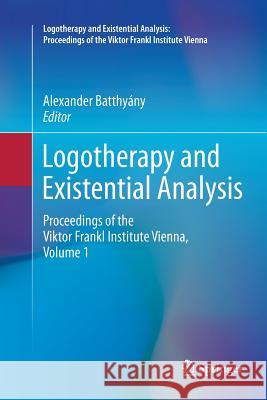Logotherapy and Existential Analysis: Proceedings of the Viktor Frankl Institute Vienna, Volume 1 » książka
topmenu
Logotherapy and Existential Analysis: Proceedings of the Viktor Frankl Institute Vienna, Volume 1
ISBN-13: 9783319805689 / Angielski / Miękka / 2018 / 469 str.
Kategorie:
Kategorie BISAC:
Wydawca:
Springer
Seria wydawnicza:
Język:
Angielski
ISBN-13:
9783319805689
Rok wydania:
2018
Wydanie:
Softcover Repri
Ilość stron:
469
Waga:
0.68 kg
Wymiary:
23.39 x 15.6 x 2.51
Oprawa:
Miękka
Wolumenów:
01
Dodatkowe informacje:
Wydanie ilustrowane











